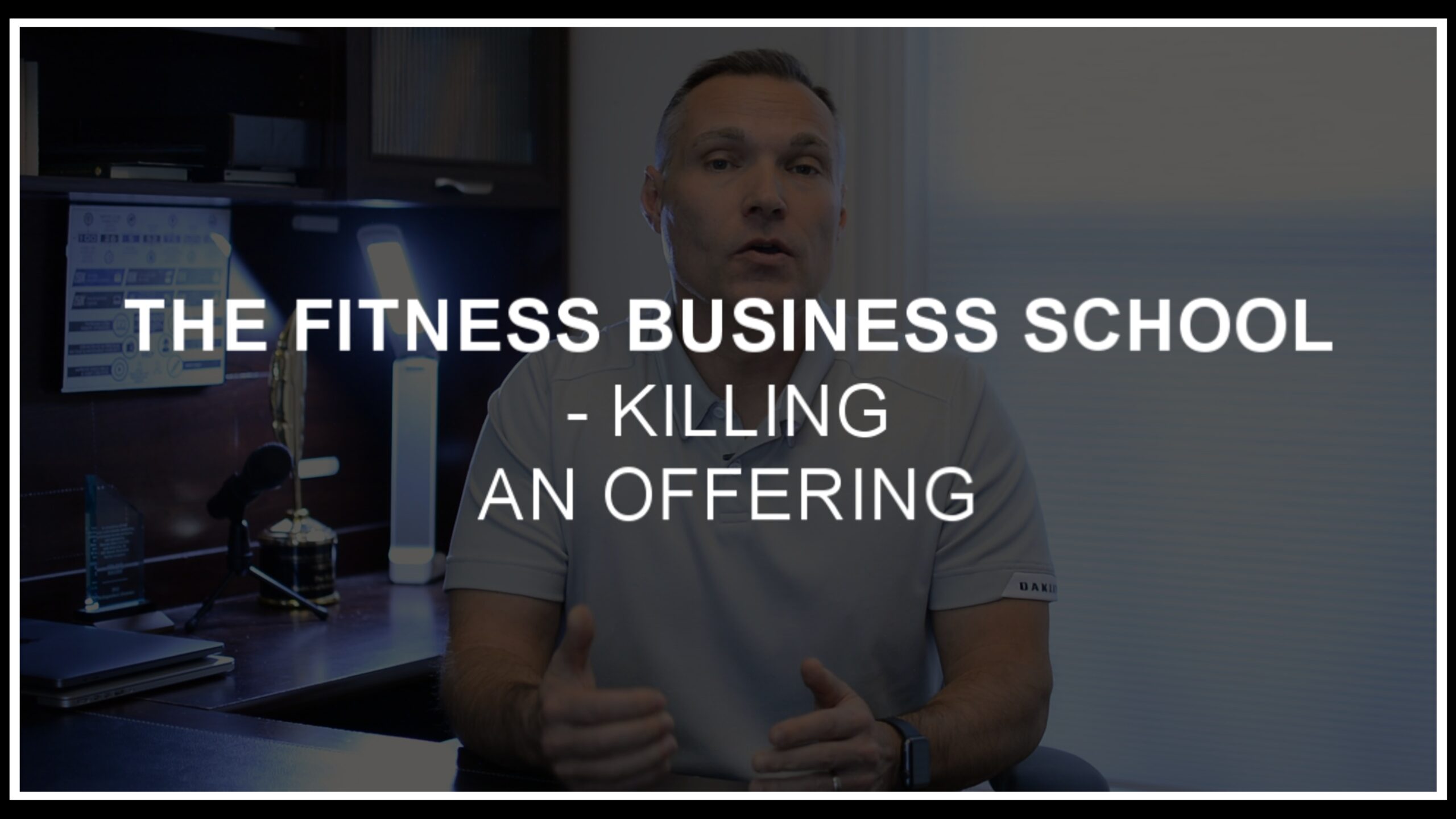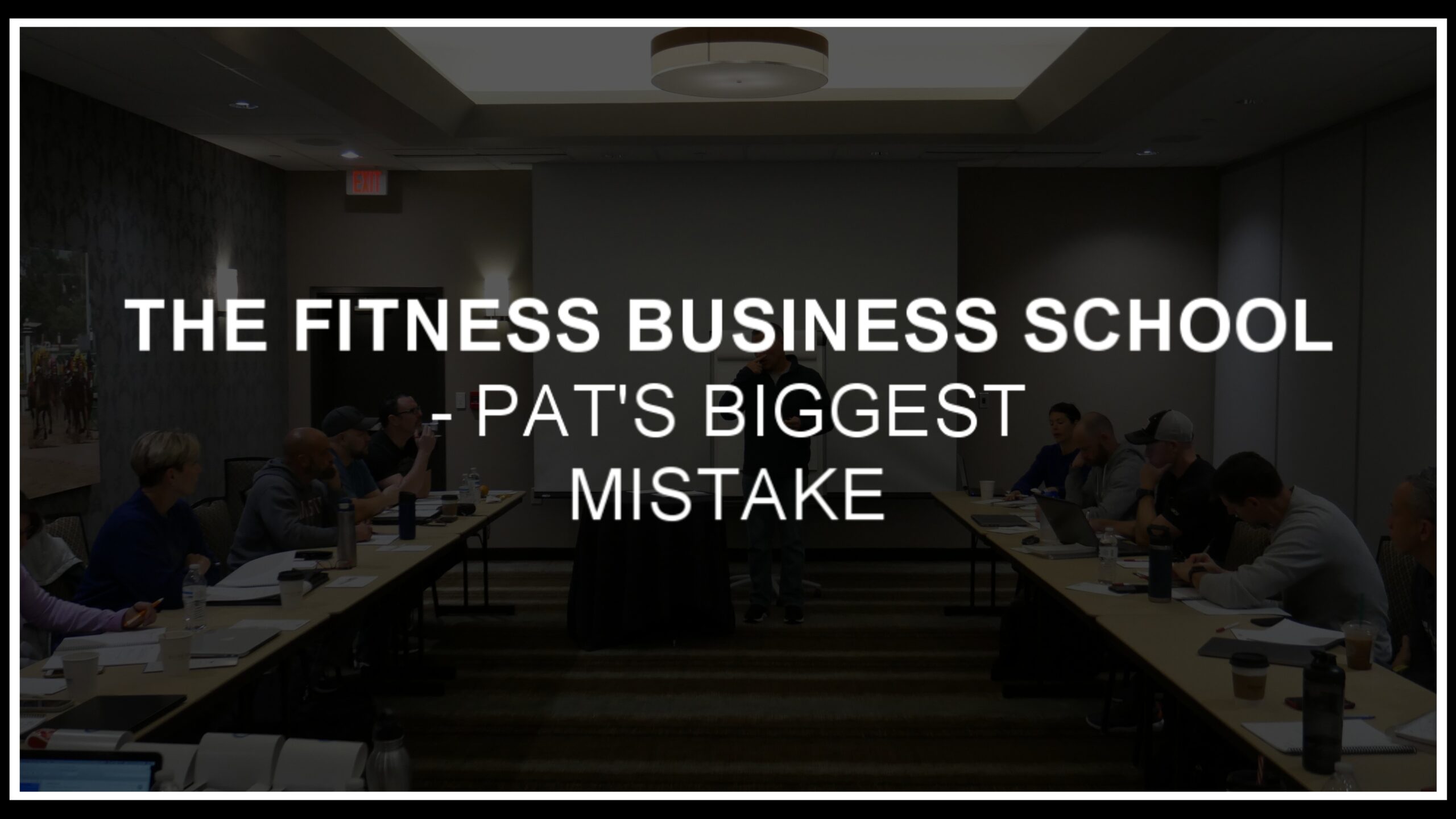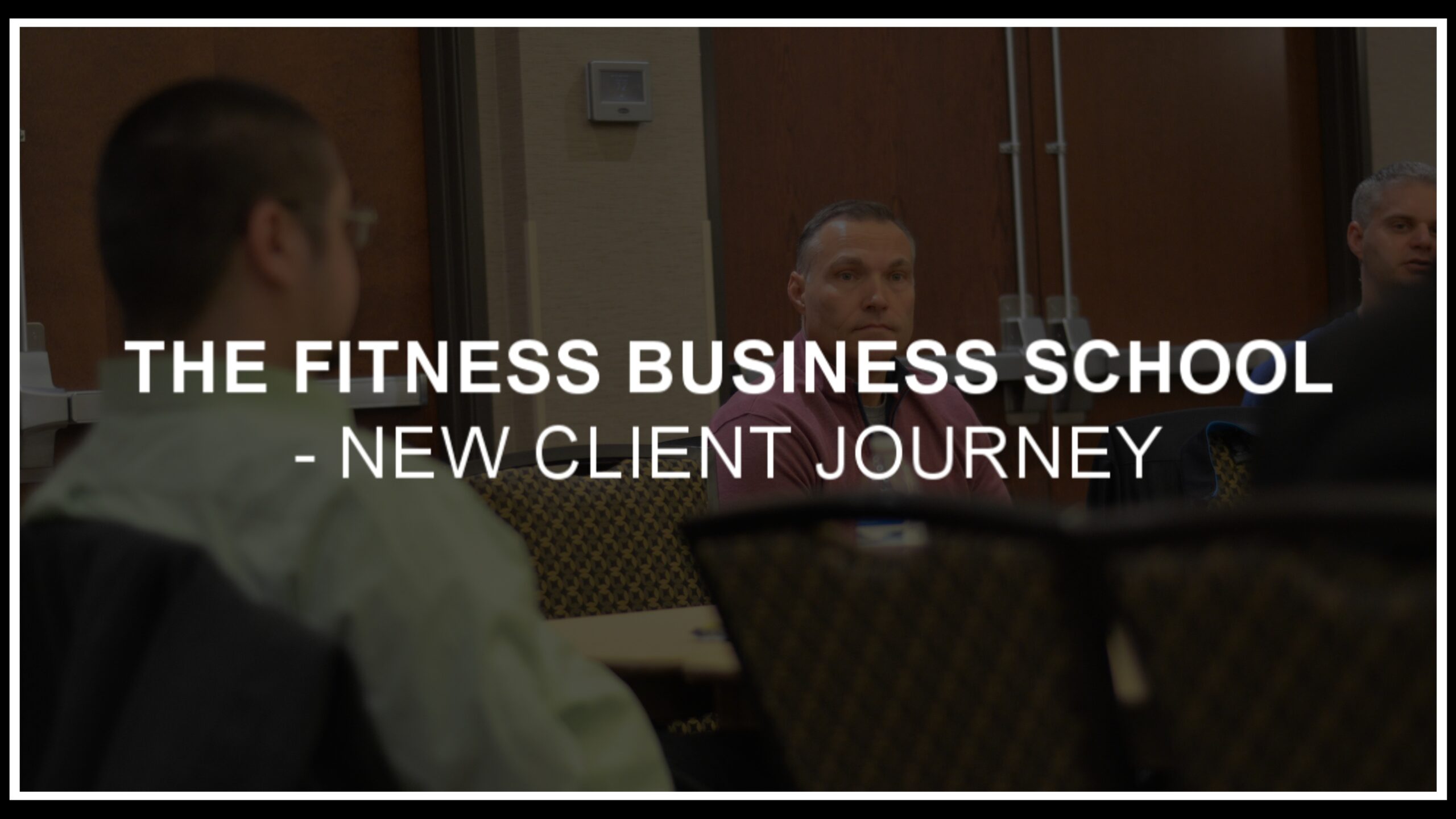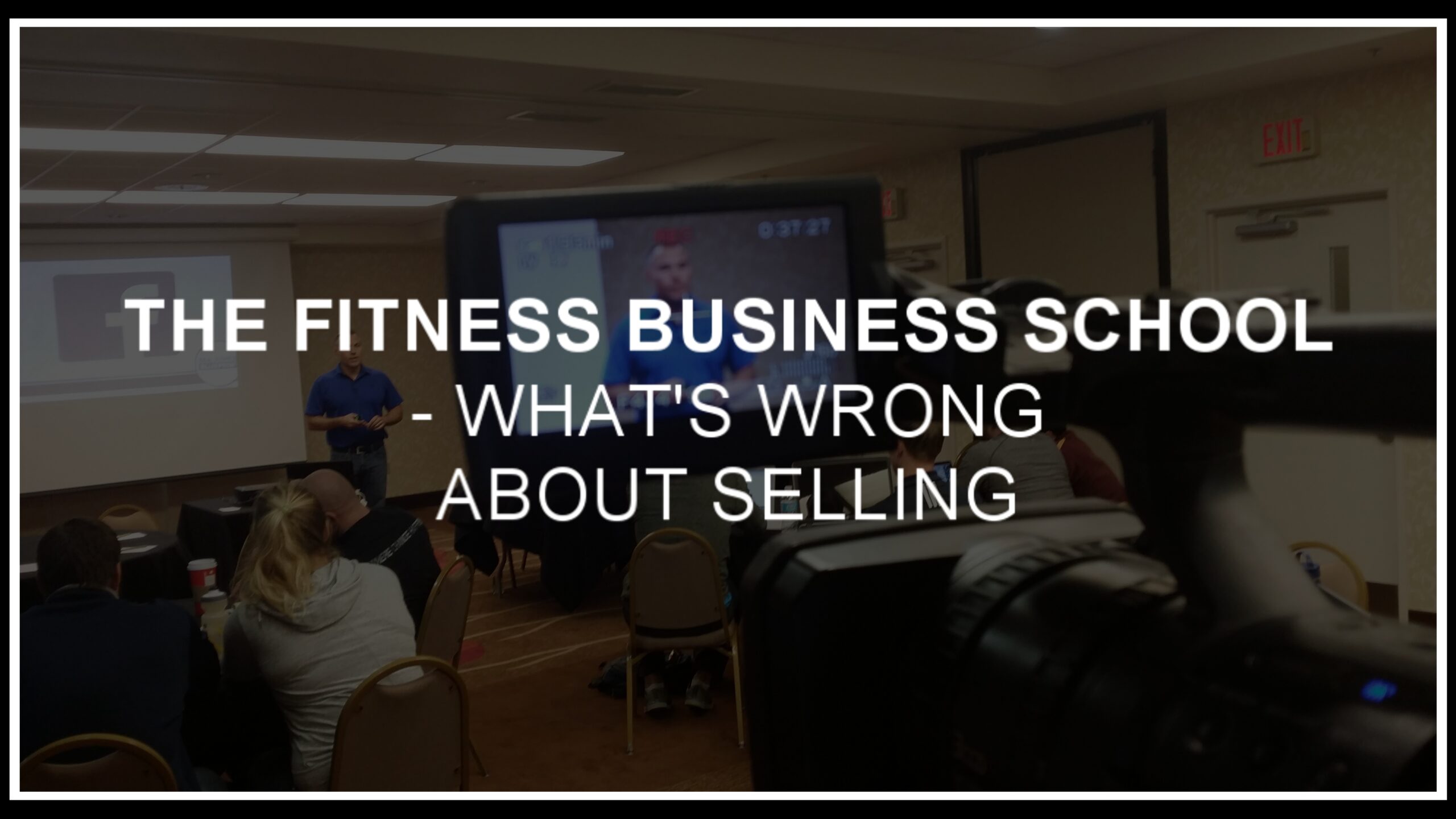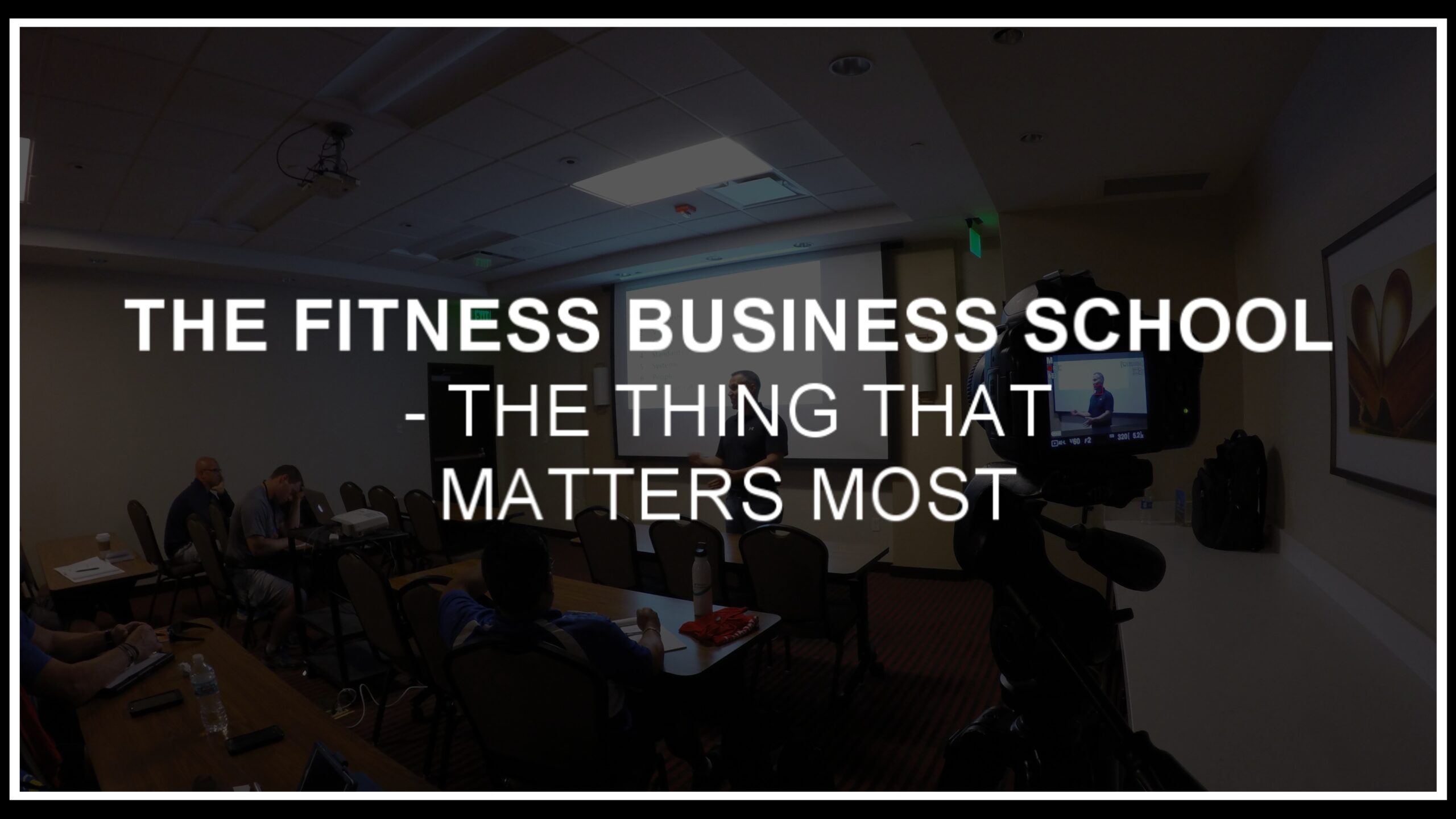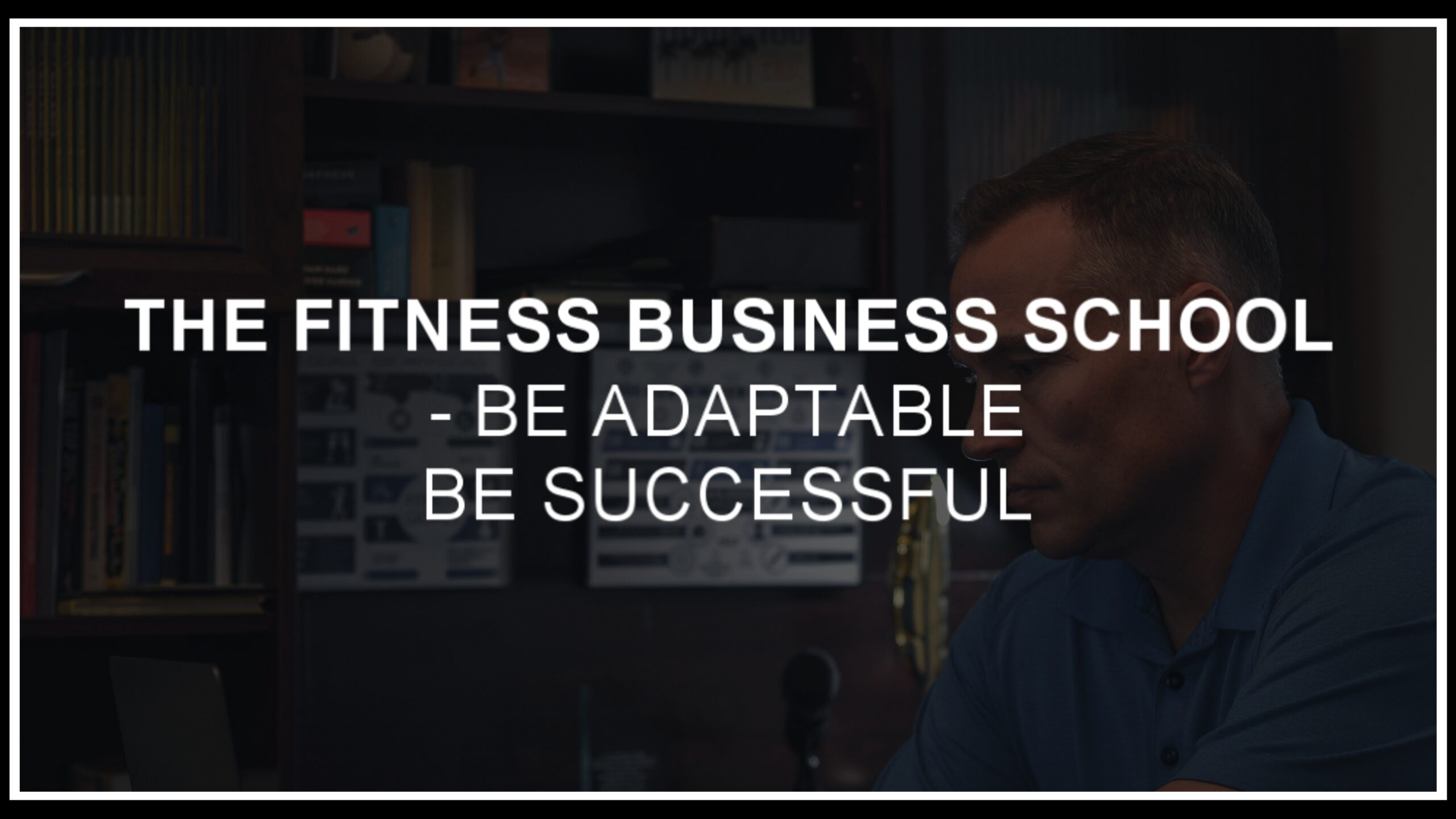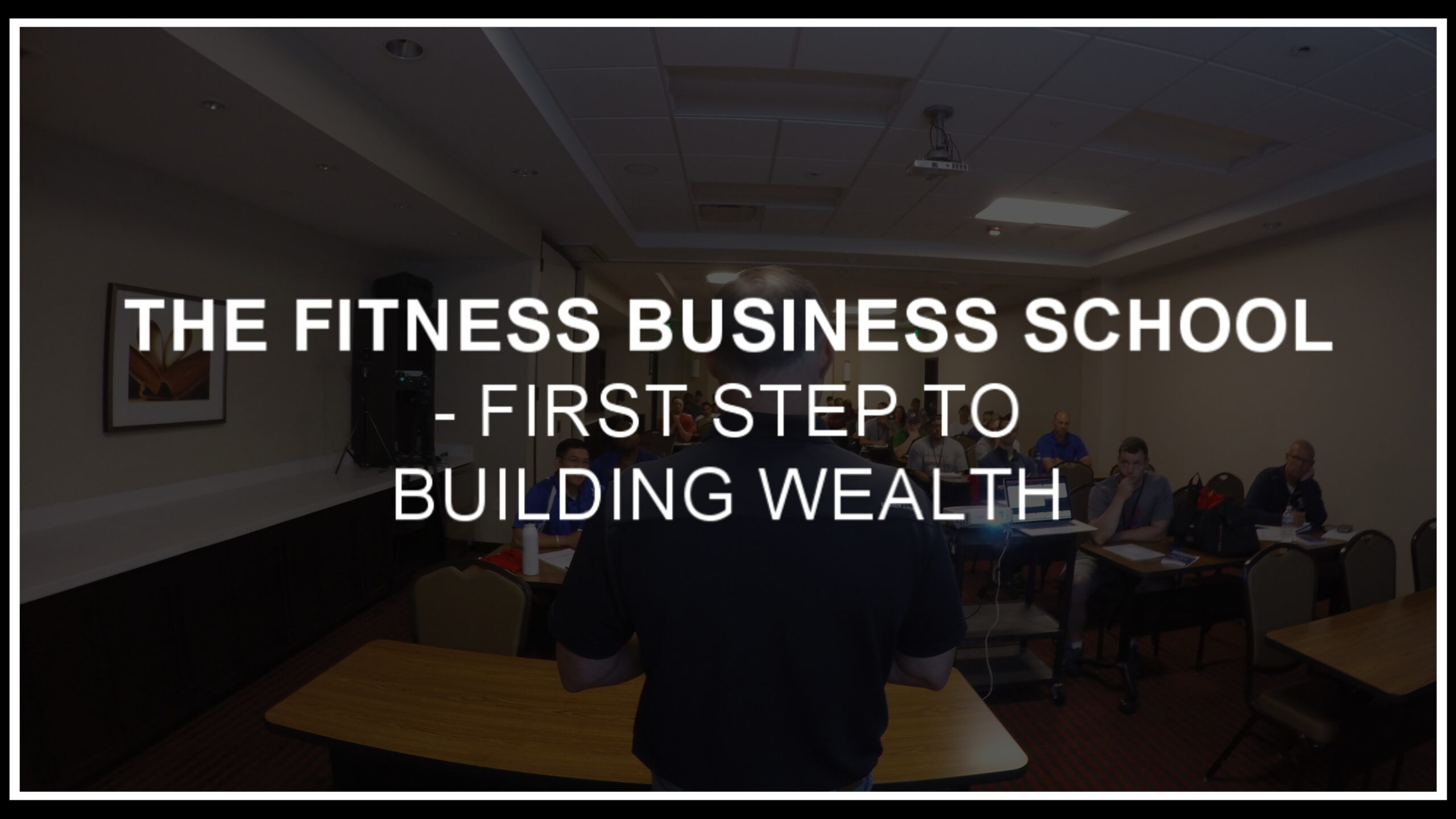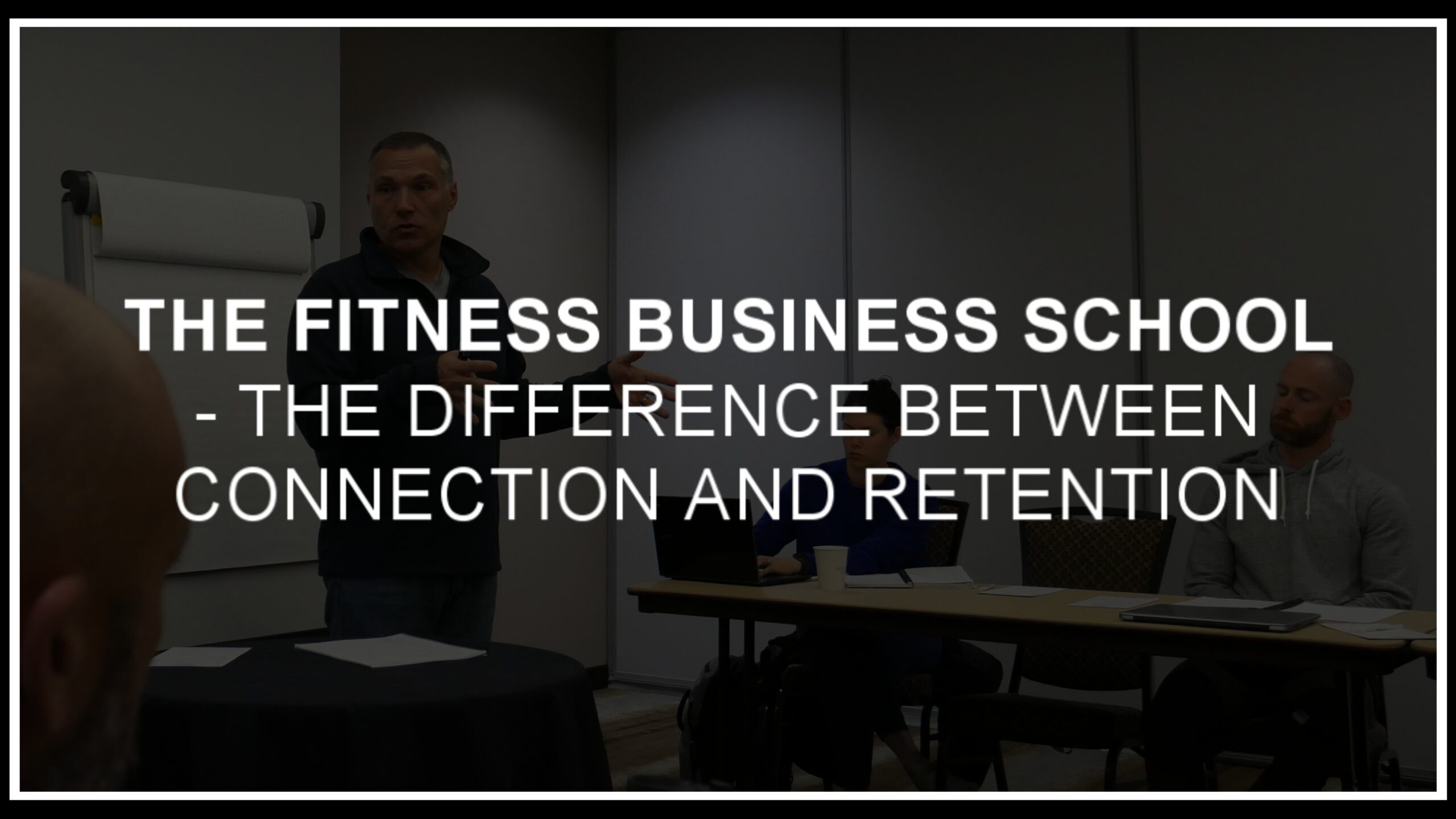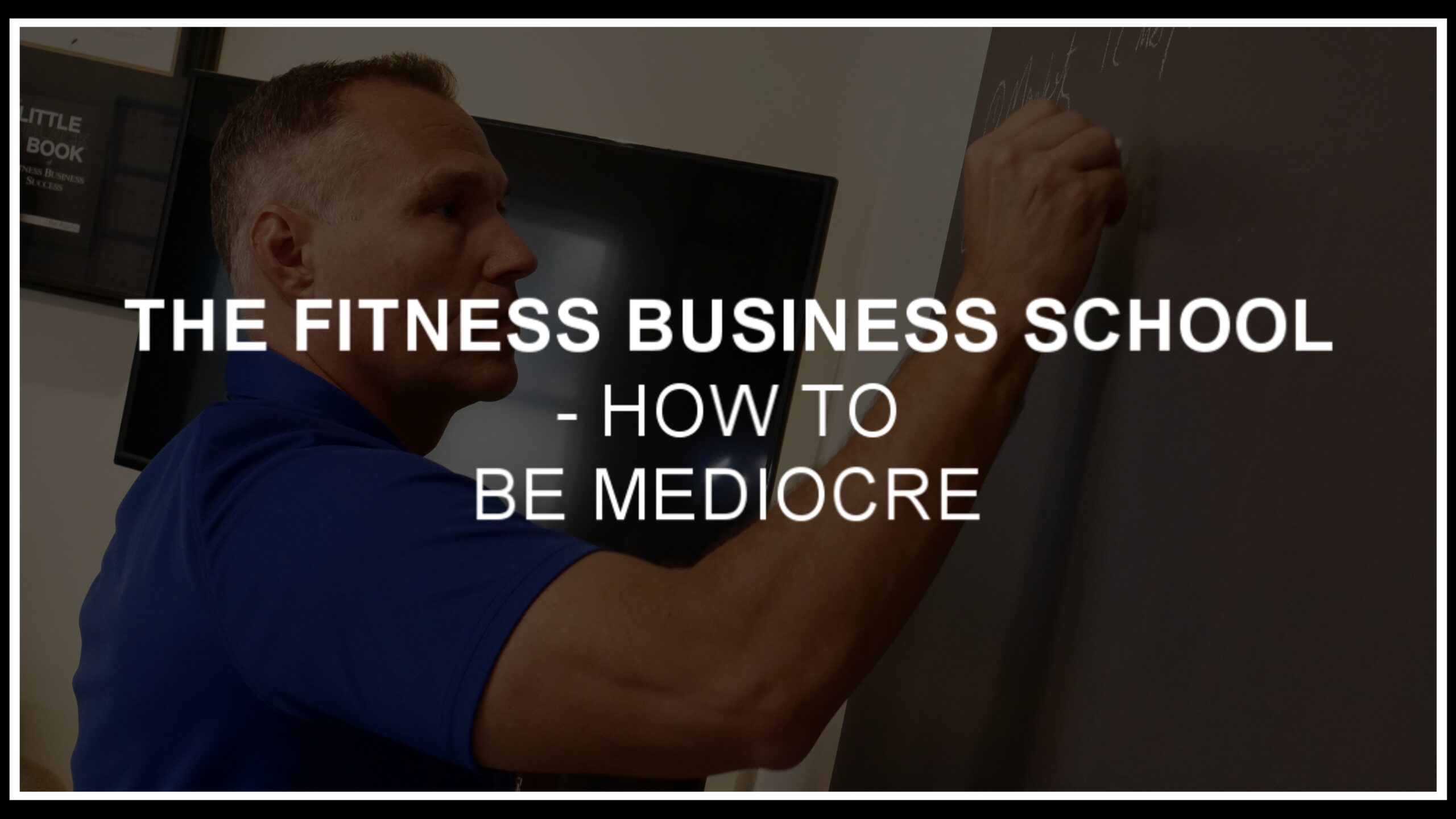Show Notes
- Pat gives away a ton of free help
- He’s shutting down a free Facebook Group of 4000 people
- The engagement was too low, hard to “culture-filter”
- Culture is a big deal in his business
- Free FB groups are floundering now
- You want to help people who are actively invested
- A low-entry fee filters out the spammers
Full Transcript
Hey, Pat Rigsby here and in today’s episode I wanna talk with you about why I’m killing one of my offerings. Let’s get to it.
Welcome to the Fitness Business School podcast, the show for fitness business owners who want to grow their income, increase their impact and improve their lifestyle. Be sure to listen to the end of this episode because we have a brand new special offer exclusive for listeners. So stay tuned.
So if you’ve been around my business, if you’ve been listening to this podcast for a while, and wow, we are man, somewhere in that 400 plus range of episodes, you’re probably aware of the fact that I give away a ton of information. I write books and I give them away. A lot of times I’ve created special reports, I’ve done tons of videos, we’ve done over 400 episodes of the podcast. I’ve sent a daily email newsletter for over 18 years without missing a day.
There’s a lot of useful information out there, both kind of single serving type of stuff like podcast episodes or emails or bigger kind of resources like books or the entire, I’ve given away programs for different types of clients at different points, and, and I really enjoy doing that because I think that there’s not only great
value in it as a marketing tactic, you know, I think that it helps position me for the right people that gravitate to the simple, hopefully common sense type approaches that I teach the timelessness of some of it. Hopefully a lot of people gravitate to that and then find their way into our coaching program. So we get
to work together in a much more close-knit fashion to, to work on their business and their goals. But the other piece of it is you just get to help. I think that you get to, like a lot of us got into this industry because not that our sole purpose was, Hey, I just wanna be altruism, like altruism focused and just help
people.
Like it’s a job, it’s a business, it’s for profit. So, but I definitely know that I love the idea of having a much broader impact by doing things like podcasts or sending a newsletter and reaching tens of thousands of people every month than being limited to the number of people that we can coach in that more personal
setting, because there’s no way we would ever have the capacity for me to personally coach the number of people that we might reach via these other mechanisms. Well, I tell you all that because we are getting ready to shut down our free Facebook group, the fitness business owners group, and the fitness business owners group actually has a number, like it’s got almost 4,000 members in it, which some people might think that’s crazy. Hey, that’s a marketing channel of 400, I mean 4,000 people that you can go do stuff with.
And we put a lot of time and money into trying to deliver some really good stuff. We, we hired somebody who kind of helped set things up and manage it for us, and she did a, a wonderful job accomplishing what we set out to do an absolute fabulous job building out a system that allowed us to go in and pretty much
every week deliver a coaching session that I think almost all of them were higher value than most of the coaching sessions people see at live seminars that they’ll pay thousands of dollars to travel to and attend. And we were giving all this away as well as plenty of things in the guide section that were valuable
resources, but there were a couple things about the free Facebook group that just, it, it just never clicked. Like the first thing was, it was not one of these things that was highly engaged, right?
Like for the volume of people who were in it there, the amount of engagement probably wasn’t what I would’ve liked it to be. The, and then the second thing that, that I recognized very quickly was there wasn’t an easy way to filter people to create the culture that I wanted to create because invariably we
would spend a decent amount of work hours each week filtering out either people who had kind of found their way in the group, or people who were trying to get into the group to spam the other members, to direct message them with their own coaching offers or to spam the group or that sort of thing. And I’m big
on culture. I’ve been a student of culture in teams and businesses since probably 1996, 1997 when early on in my college of baseball coaching career. And I’ve written a book on culture called The Culture Blueprint, and it’s a big deal for me.
And I just felt that I could not create the type of culture I wanted in that environment because these types of folks were going to sneak in and even if they answered the questions that allowed them in the group in a dishonest way, they’re gonna sneak in and they were gonna do these kind of what I would call kind of
unsavory things in the background. And I just didn’t wanna spend all my time policing scammy people trying to pitch these coaches because then it makes that group less valuable to them. It distracts from what we’re trying to accomplish. And this idea of a yes, I mean, it’s a marketing tool and we want to generate
business from it, but we also want to help a broader number of people. Then we would probably be able to help in our really high touch coaching programs. So the, that became a whole lot more of an issue and the amount of free content that we were giving away there, I, I mean it, I had no problem giving that
volume of stuff away, but I also felt like free Facebook groups at this point, the people who were early adopters of them.
And there’s some people who’ve done a wonderful job with them. I know Alicia Streger has traditionally had a really strong free Facebook group. I know one, one of my former clients at late say in back the used it as a driving force in growing his business to the nine figure level, but they were earlier
adopters. And so the way that they were doing it and the traction they had and the engagement they had, I mean, it all made plenty of sense. But I would say that at this stage, 90% of the Facebook groups that I’ve joined over the years, and I’ve heard this from plenty of other people, have not had nearly the bang for the
buck that that they used to. And it may just be a case of, hey, we made this a priority far later because we were making things like the podcast or we’re making things like the newsletter priority earlier.
And so we were kinda late to the party. We see that a lot in business. Somebody will adopt a strategy that might have been valid or worked when you were an early mover, but later on it didn’t have the same kind of bang for the buck. I remember early on in the bootcamp landscape, the people that were opening up the
first bootcamp in each respective market were just raking in money, hand over fist, charging premium prices. I mean, I knew plenty of people that were running bootcamps in the park charging $299 per month, and they’re basically using yoga mats and light dumbbells and bands not even having their own
indoor space. And they’re charging more than almost every group training provider in the industry charges now, no matter how nice their location is. And so, but those were the early adopters, and I think that holds true here too.
And so that’s a big lesson I think for all of us, is I don’t care what your resources are. I mean, I’m sure that we allocated plenty of resources to this and it just never really felt like we were going to be great at doing this the way we wanted and delivering things the way we wanted and building it out the way that we
wanted and getting the outcome the way we wanted it. Because with me, culture being such a priority, I would continually think about how do we pair off a lot of people from this group and spend more time with the people who are really invested in it, whether it be, not necessarily even a monetary sense, maybe
it’s just, Hey, I am ready to get better and I want help and maybe I don’t have the budget to join a more expensive coaching group.
So my alternative solution to this was we were going to create a really low investment membership site, like absurdly low investment membership where we provide to be frank, more than 95% of the coaching programs provide in our industry. I’ve had CEOs of franchises with well over a thousand
locations, even question like when I provided the things that we’re gonna provide in here, how we were giving away more than they were giving away in their franchise. And for me, that kind of checks the box. We’re gonna do this in a different way. We’re gonna say, okay, yes, there is an admission fee basically,
but it’s, but you get to have a better peer group, a group that is more engaged, you, we get to filter out people that we know the spammers are not going to pay admission to be part of this, and we’ll easily be able to provide probably a 100 x return on investment because it’s probably going to cost people less
than $10 a month to be part of it.
So even if anybody who’s in business, if they can’t invest $10 a month, then you know, there we probably have to question whether or not they’re in bus, like should be in business because that’s just, there’s a barrier to entry in being a business owner. So if somebody’s gonna be able to do this, then you know
what, we’re not gonna make a big financial investment, the barrier to entry here, we’re going to make a really meager financial investment, the barrier to get great stuff, but it’s also gonna be far more private and intimate because there is that barrier. So you’re gonna be around a stronger peer group. The whole
idea being we’re gonna get more of the right people in the room and help a, a smaller group than we would reach in a free Facebook group, but a much better group for what we’re trying to accomplish together.
And so that’s the re like the reasoning behind it. And there are different ways to accomplish this, but for me, this was a really simple way to still check that box of being able to help all those early stage business owners no matter how they, I mean, no matter how they were doing financially, I mean this is going to be
a as low an investment as possible, but giving them an environment where they don’t have to worry about unsavory folks, spamming them constantly because they were in this group or seeing a bunch of stuff in the feed that’s not relevant. And so this becomes very valuable to them, and I think it’ll be really easy for
us to kind of knock people’s socks off with this. So what are your takeaways from this? Well, hopefully the first one is just because somebody else does something and it works for them, doesn’t mean it’s the best approach for you.
Just because something worked at one point. Sometimes things work best when you’re an early adopter and then people coming along later are coming into a market where it becomes saturated. Everybody’s jumped on that bandwagon. And we see that a lot in so much of the internet marketing stuff because it’s
so easy to emulate a lot of things that are going on. And I know in our case, nobody will be able to emulate what we’re doing because of the volume of high quality stuff that we’ve produced over the last few years in our more expensive programs and that sort of stuff that we can share now because our more
expensive programs are getting new things. So there’s not gonna be like this, oh, wait a minute, that was exclusively for us mentality. So there are things that you can do that way too. There are things that you can do to get people into your ecosystem where the barrier to entry is much lower.
There has to be some barrier to entry at certain steps. Like if we have a, what I consider like a really low, low risk, ask a medium risk, ask a high risk, ask that medium risk ask. Maybe it requires some time or it requires a little bit of money, but it doesn’t have to require both. Now I will tell you that if I would have
no problem doing this same type of thing free, if there was a way for me to require somebody’s investment of time instead, like if I required people, like if I was in a major metropolitan area and was gonna do like a free live workshop or something like that, that they actually had to be willing to invest
time for, I would have no problem with that being an alternative to this, and I think it would work just fine. So that’s the logic behind what we’re doing.
And I think for me, it’s always a good thing to keep evolving. Say, how do we keep getting better? How do we keep improving and not being married to something just because you did it once or that was just part of the, the operating plan at one point, being ready to move on. And I think that may be the case for
you too. I think sometimes there’s this misnomer that if you quit doing something that’s a negative, the idea of no longer making effort in general towards a goal, I think is a negative. But the idea of pursuing a better path to the goal, I think is a positive. If you’ve put in enough time, effort, and energy to have an
idea about the effectiveness of the approach you’re taking and have a hypothesis that there may be a more effective approach available to you, then consider that one by all means and use your resources where you have the best ability to get to where you’re trying to go.
Thanks for listening to this episode of The Fitness Business School.
Before you go, I have a quick announcement:
One of of the things that we’ve been doing with our current clients is taking them through this Ideal Business diagnostic and really what it is, this checklist that allows you to pinpoint exactly what your business needs next so you can keep improving, keep growing, and build a business that you love to own, one that pays you well, one that allows you to have the impact you wanna have and one that allows you to have a lifestyle that you truly enjoy.
In this diagnostic, we walk through everything and we do an evaluation and can instantly pinpoint what you need to do next to build that business that you want. I’m going to extend this opportunity to get on with either me or my team and take you through this evaluation and fix your business’s most vital needs fast.
So if we take you through this, you’re gonna be able to make those vital changes that you need to finally have what I call your Ideal Business. If you’d be interested in going through this entirely free, risk-free diagnostic with us and learn what you already have in place, what you’re doing well and where are your greatest opportunities for rapid improvement are just shoot me an email with diagnostic in the subject line to [email protected].
Again, an email to [email protected] with diagnostic in the subject line will get you scheduled and take you through this evaluation to help you build the business you want.


